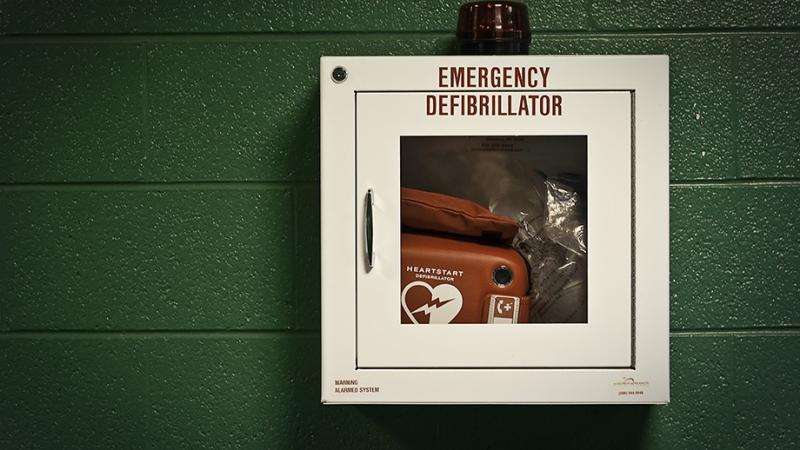A million Australians missing out on heart treatment

Around one in five Australians aged 45 to 74 are at high risk of heart attack or stroke within the next five years but almost one million of them are not receiving the currently recommended combination of medications, a major new study has found.
Cardiovascular disease is one of Australia's leading causes of death. The study concluded that tens of thousands of Australian lives could be saved if people aged 45 or older had a full risk assessment and if people at high risk took the recommended mix of blood pressure-lowering and cholesterol-lowering medicines.
The research, led by Professor Emily Banks from The Australian National University (ANU) and funded by the Heart Foundation and the National Health and Medical Research Council, has been published in the latest Medical Journal of Australia.
"Australia has a massive opportunity to prevent heart attacks and strokes," said Professor Banks, from the National Centre for Epidemiology and Population Health at ANU.
The research is the first to quantify the risk of cardiovascular disease for Australians.
It found around 20 per cent of the population aged 45 to 74, or 1.4 million Australians, had a high risk of a heart attack or stroke within the next five years.
Risk factors include a person's age and sex, whether they smoke, their blood pressure, the balance of good and bad cholesterol in their blood, whether or not they have diabetes and their level of kidney function.
"A full cardiovascular risk assessment allows therapy to be targeted to those who would most benefit from it. Not only is this good clinical practice, it makes sound economic sense," Professor Banks said.
Medications to lower blood pressure and cholesterol are currently recommended in people at high risk and can more than halve the chances of having a heart attack or stroke in the future.
The study found a majority of those at high risk were not taking these medications, amounting to almost one million people at high risk not receiving them.
Heart Foundation's national chief medical advisor Professor Garry Jennings said the findings were a wake-up call - for the community, health professionals and government - about the huge number at risk and missing out on life-saving checks.
"More than 100,000 Australians have a heart attack or stroke every year, most of which are avoidable if people at risk are detected early enough and well managed," Professor Jennings said.
"It's time to do more to reduce death and suffering. Simple things - including encouraging community awareness and providing greater government support to general practice for these life-saving heart checks - will make a big difference."
Professor Jennings added that anyone aged 45 and over, or 35 if Aboriginal and Torres Strait Islander, should go and see their doctor for a full cardiovascular risk assessment.
NPS MedicineWise Chief Executive Dr Lynn Weekes said the research findings underscored the critical role that general practice continues to have in preventing heart attacks and strokes.
"Through our medical education programs, NPS MedicineWise promotes implementation of national clinical guidelines for the assessment and management of cardiovascular risk in general practice," she said.
"Our approach includes an emphasis on managing those found to be at high risk through the quality use of blood pressure and cholesterol lowering medicine.
"Our website www.nps.org.au has a range of resources for patients and healthcare professionals on cardiovascular disease risk assessment and management."
















